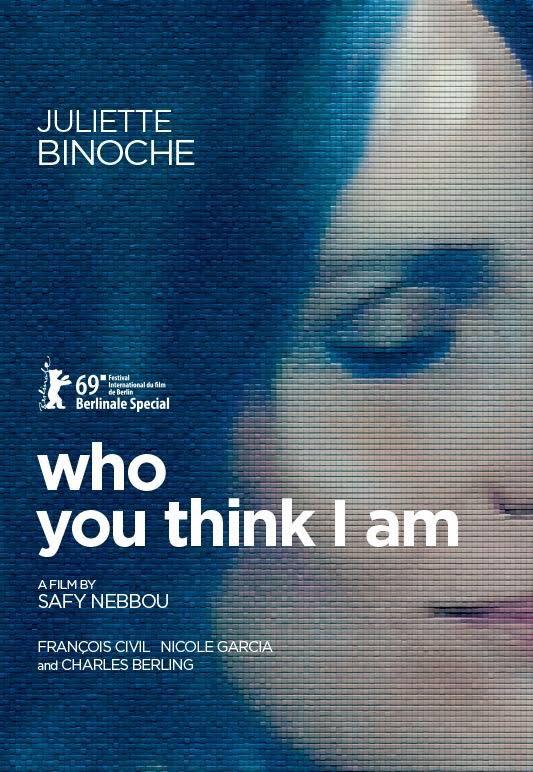Who You Think I Am

French titan of cinema Juliette Binoche stars in this explorative psychological drama directed by Safy Nebbou, taking on the role of lecturer and divorced mother of two Claire, who finds herself entangled in a web of lies, burning emotion and mental destabilisation very much of her own making. Yearning for a greater companion then her blasé and non-committal lover, she creates a fake Facebook profile for herself, impersonating a 24-year-old woman with an entirely fictitious background. Falling in love through the screen, Claire becomes vivaciously attached to Alex (Francois Civil), who also begins to reciprocate her feelings. However, the further Claire journeys into this fictional persona, the more obsessive and unstable she becomes.
Of course, Binoche is a joy to behold, but who would expect less from the Oscar-winning actress? For large portions of the film, the emphasis is placed entirely on her: whether it be during longs rolls of dialogue over the phone with Alex – with conversations going as far as Claire pleasuring herself to his voice – or simply sections of narrative consisting entirely of expressions, she nails the part. The supporting cast do what they must, but ultimately this is a film featuring, and about, Binoche’s Claire. The picture jumps between two different moments in time, and an extra dynamic is injected into the story with the inclusion of Claire’s psychiatrist Dr Catherine Bormans (Nicole Garcia), who helps focus the blurred lines in her patient’s perspective of the past, as well as invoking some unpredictable twists along the way.
The concept itself is interesting and very real in the grand scheme of things. People do indeed meet online and “catfishing” certainly isn’t uncommon in the 21st century, but it is precisely for this reason that Who You Think I Am becomes problematic. Alex seems far too willing to engage with a random stranger online, let alone embark on an entire virtual relationship with them without actually meeting them for so long – particularly when in person he appears far more reserved. This naivety on his behalf allows the plot to unravel as it does, but you can’t help but question the plausibility of the plot.
The cinematography is lovely to observe, helping to reflect Claire’s state of loneliness, rejection, joy and romance, but as a whole, the film seems to be lacking that sense of urgency which draws in and transfixes the viewer. Claire’s lies in the online community seem to be matched by her deceitfulness in the real world, raising the question of whether she is really a likeable character at all – but then again it could just about be argued that this is the intention. There is no doubt that it makes for entertaining watching, but is it truly a memorable experience? On this score, opinions may differ.
Guy Lambert
Who You Think I Am is released digitally on Curzon At Home on 10th April 2020.
Watch the trailer for Who You Think I Am here:

























Facebook
Twitter
Instagram
YouTube
RSS